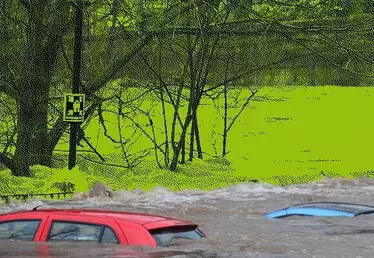

Hero banner custom title
Ecocide: ending impunity for environmental crimes
4 min
Dior Fall Sow, Senegal's first female prosecutor and former consultant for the International Criminal Court, co-chaired a panel of experts convened by the Stop Ecocide Foundation to define this crime. She explains the importance of including this term in international law.
How did you reach a definition of ecocide?
We worked for six months with a panel of twelve legal experts, women and men from a wide range of backgrounds and countries. We reached a consensus on a definition of ecocide, which we officially presented on 22nd June 2021.
This is not the first time that this crime has been defined; it already exists in the law of several countries, such as Russia. But we were aiming for a definition that could be introduced into the Rome Statute of the International Criminal Court. So we suggested adding ecocide to the four other crimes in the Statute, namely genocide, crimes against humanity, war crimes and crimes of aggression. And we proposed an amendment to Article 8 to define it as: unlawful or arbitrary acts, committed in the knowledge that there is a real likelihood of causing serious, widespread or long-term damage to the environment.
Ecocide :
“Unlawful or arbitrary acts, committed in the knowledge that there is a real likelihood of causing serious, widespread or long-term damage to the environment.”
We then had to define each of these terms, which generated a lot of debate. We also took care not to restrict judges by providing overly precise wording, which would deprive them of their power of interpretation.
Why is it important to recognise this crime at an international level?
Ecocide refers to the most serious crimes committed against ecosystems and our environment in general, such as the use of chemicals, deforestation, toxic waste trafficking, illegal exploitation of natural resources, destruction of endangered species, etc. Etymologically, “ecocide” means “killing our home”.
“The aim is to be able to punish decision-makers, especially multinationals, which are guilty of such acts.”
The alarm has already been sounded many times, and much stronger measures must now be contemplated. The aim is to be able to punish decision-makers, especially multinationals, which are guilty of such acts. At the moment, they are not criminally liable, they are merely civilly liable: they risk fines, which they can pay because of their very large financial base. The problem is one of impunity. If we could get ecocide into international law, they would be criminally liable, and they could be prosecuted by the International Criminal Court, regardless of national laws.
What remains to be done to achieve this recognition?
The definition we have provided is a first step. What remains to be done is to raise awareness among the States Parties to the Rome Statute, so that these amendments are adopted by a majority of them. There are many States that are in favour of it today, particularly small States that are subject to very serious damage to their ecosystems... The others still need to be convinced.
We have embarked on an adventure that can only end with the inclusion of ecocide in the Rome Statute. It is not going to be easy, but we must be optimistic and pursue our efforts to the end. It is a necessity, because we urgently need to guarantee the safety of our environment on a global scale.











